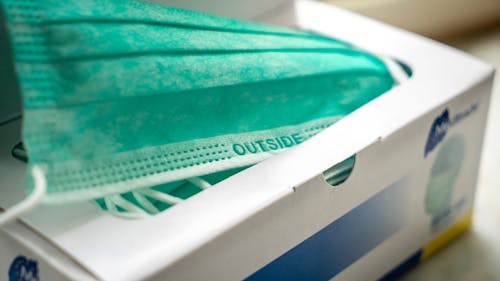Mask requirement will remain in select areas on campus this semester, Calcado says

Executive Vice President and Chief Operating Officer Antonio M. Calcado sent a University-wide email on Tuesday announcing the University’s health protocols regarding the coronavirus disease (COVID-19) and the monkeypox virus for the Fall 2022 semester.
Calcado said that while the BA.5 subvariant of omicron continues to spread throughout the country, its ramifications do not as frequently lead to hospitalizations and deaths as was the case in previous years and variants, according to the email.
“It is clear that the COVID-19 virus, in some form, is now a permanent part of our daily lives,” Calcado said. “As the virus moves from pandemic to endemic, Rutgers continues to maintain its COVID-19 safety protocols on face coverings, vaccines and boosters, testing and quarantining and isolation.”
The University will maintain its current COVID-19 protocols, which include requiring face coverings in all indoor teaching spaces, libraries and clinical settings, according to the email.
It will also continue to require that all students and faculty, as well as volunteers, contractors and guest lecturers, be fully vaccinated and boosted, and require proof of vaccination or a negative PCR test taken to attend indoor events.
Calcado also said the monkeypox virus is a new public health concern that is different from COVID-19 and should be taken seriously.
“Unlike COVID-19, which is very contagious and is spread primarily via a respiratory route, monkeypox is much less contagious and is typically spread through close skin-to-skin contact with an infected person and not by casual exposure,” he said.
While commercial testing and antiviral treatments for the monkeypox virus for those with symptoms are already available in the country, Rutgers does not have access to the vaccine and will not yet offer treatment due to the short supply, according to the email.
“The university will continue to monitor both viruses and will update these important protocols throughout the fall semester,” Calcado said.



